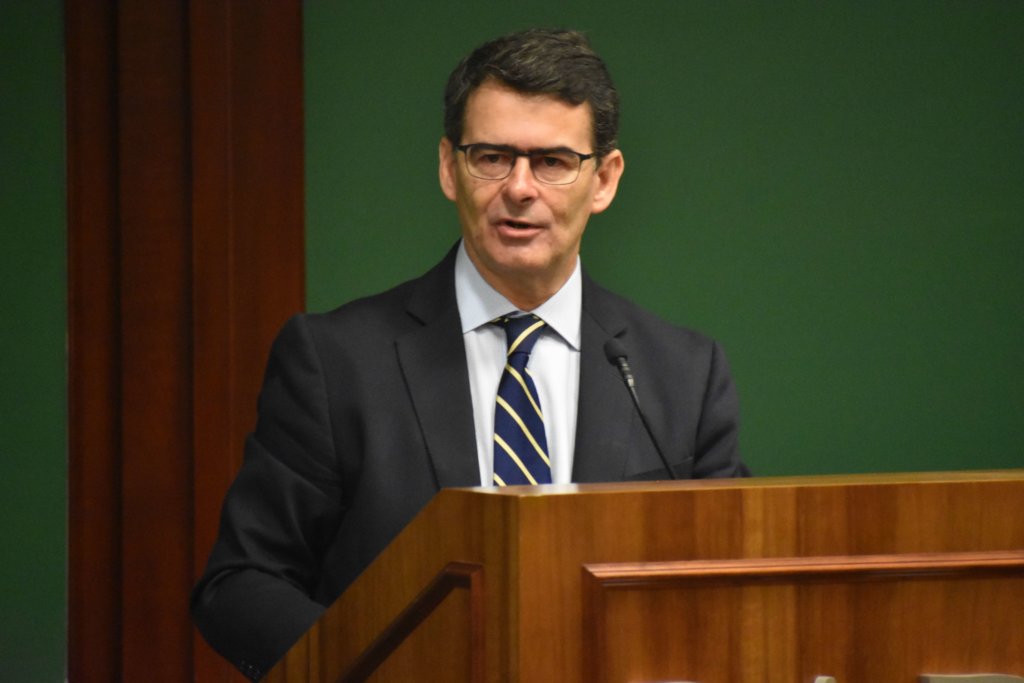Carlos Arbesú began his career advising and educating family businesses in a time of need.
It was the late 90s, and Spain was reeling from the effects of an economic recession. In confronting the crisis, the government and media focussed their attention on foreign investment from corporate multinationals, neglecting family businesses almost entirely. The need for an advocate was apparent. So, to promote their cause, Arbesú set up an association of family businesses.
Inspired by Miguel Angel Gallo, Europe’s first Family Business Chair at IESE Business School, Carlos Arbesú started consulting and doing governance work with family businesses as a board member. In this capacity, he observed and became fascinated by the functional aspects of family councils as well as the dynamics at play therein.
Later, Arbesú brought this fascination, along with the considerable expertise he developed in Spain, to Perú, where he’s helped LATAM family businesses thrive through education ever since.
We sat down with Carlos Arbesú to discuss professionalisation, strengthening corporate governance and the entrepreneurial opportunities opening up to Peruvian next-gens.

How do family businesses contribute to the Peruvian economy?
As in any other country, family businesses are the backbone of the Peruvian economy. Here, they have a particularly substantial presence in the industrial sectors but play an integral role across the board in agriculture, retail, food, tourism and even fashion.
What are your goals as the Chair of PAD Business School’s Family Business Center?
We aim to strengthen family businesses in Perú and the wider Latin America region by further developing knowledge and research on the topic. By 2030, we hope to be a leading reference in the region, spreading governance best practices to ensure the business sustainability of those in our network.
“Vision is the most important consideration. To manifest the future they wish to see, family businesses must first have a clear picture of it.”
What are these family businesses hoping to achieve?
Family businesses in Perú have common strategic goals: they wish to grow and, in particular, internationalise.
In Perú’s current stage of development, professionalisation is still of paramount concern for family businesses. They’re looking to act more strategically with regards to the aforementioned goal, setting themselves up for future success.
What are some of the greatest challenges for Latin American family businesses moving forward?
The most significant challenge Latin American family businesses face is in adapting to change and growing into the uncertainty of tomorrow’s economy. Only by staying relevant will they gain respect in international markets – that means adopting the latest technologies, practices and structures where advantageous. To these ends, LATAM family businesses must first strengthen their corporate governance, while at the same prioritising family vision and values. It’s a delicate balance, but family councils and boards are the engines that will carry us forward.
What should family businesses have in place to ensure this growth?
Vision is the most important consideration. To manifest the future they wish to see, family businesses must first have a clear picture of it. A ten-year plan is the minimum; 20 or 30 years is ideal. On the road to achieving their vision, family businesses need to implement a family education plan as well, acquainting themselves with sophisticated corporate and family governance and preparing themselves for the future.
How else can LATAM family businesses and family businesses around the world work on their preparedness?
Aside from bettering their education and diversifying by expanding into new markets, families business members, especially next-gens, should prepare for uncertainty and disruption. Digitalisation, the first wave of a radical technological transformation, is already having a drastic impact on family businesses – and it’s just the tip of the iceberg.
Family businesses must adapt to or, preferably, lead the change in their industries. Today, family education plans should include short, focused programmes at the best conventional business schools in the world, as well as incorporating alternatives like the programmes offered by Singularity University or group visits to Silicon Valley or China, for example.
Has Peruvian entrepreneurship changed with next-generation family members joining the business?
Certainly – next-generation entrepreneurial spirit in Perú is strong, and typically, those coming up in the family business are better educated than their parents. This enables greater access to capital, increasing the growth potential of new ventures. Angel investors, both domestic and international, are taking Perú seriously; the current environment is more than favourable.
“It’s the board’s responsibility to protect the family from the business, and the family council’s responsibility to protect the business from the family – not the other way around.”
How far along are Peruvian family businesses when it comes to implementing corporate and family governance?
Professionalisation is a top priority for Peruvian family business, and the practice of having independent board members is gaining traction. In Perú, family councils, as in other Latin American countries, are highly developed because of cultural factors. However, they become dysfunctional when they get involved in business matters that should be the board’s exclusive domain.
It’s the board’s responsibility to protect the family from the business, and the family council’s responsibility to protect the business from the family – not the other way around. Education will play a significant role in differentiating these functions. Latin American family businesses still have a lot of ground to cover where this is concerned, but they are applying themselves with characteristic enthusiasm and a comparable work ethic.














